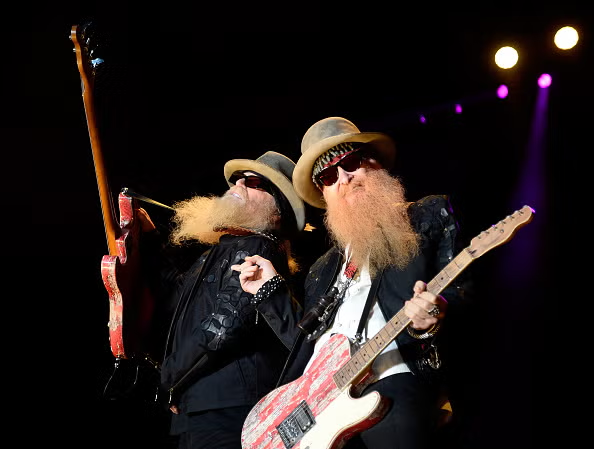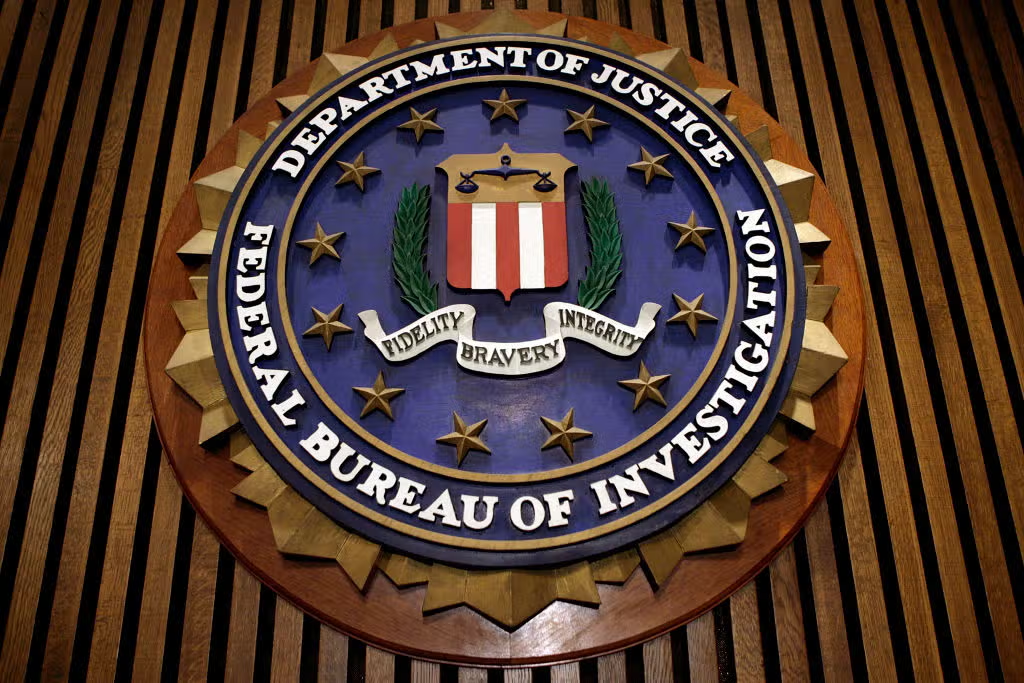‘Hoppy’ Hair Days: The Surprising Benefits of Beer Shampoo
There are numerous techniques that people swear by when it comes to achieving their dream hair. These methods include using masks, salon-style treatments, costly hair products, various oils, and more….
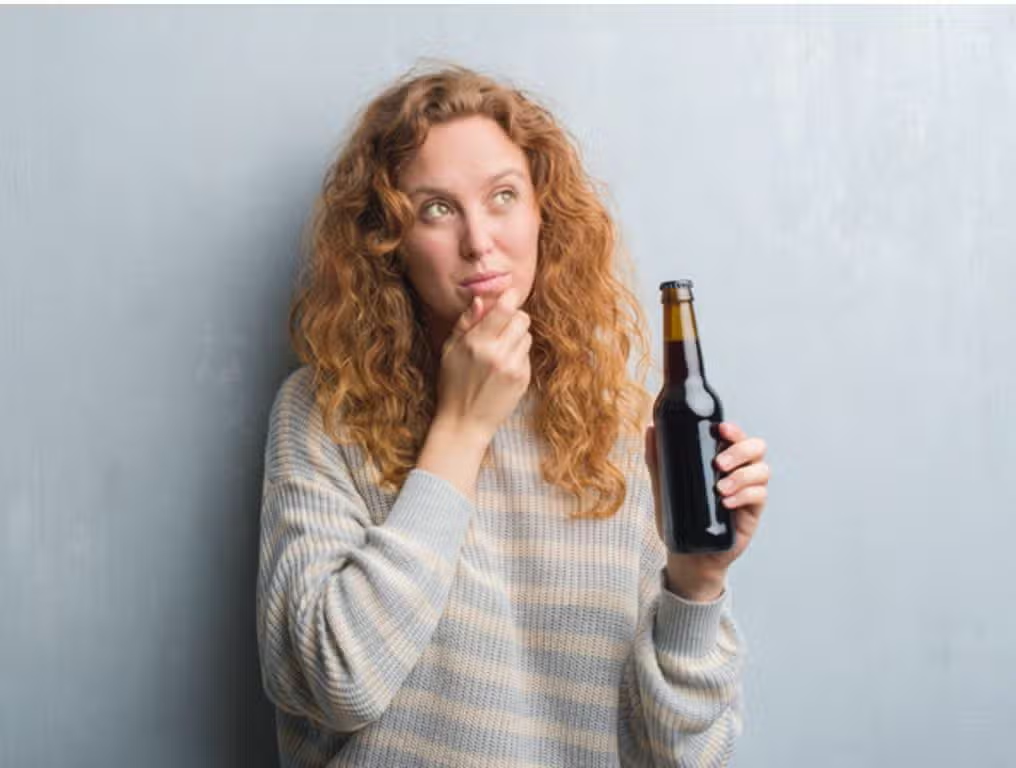
There are numerous techniques that people swear by when it comes to achieving their dream hair. These methods include using masks, salon-style treatments, costly hair products, various oils, and more. However, have you ever considered enhancing your hair health with beer?
Some people believe that washing your hair with beer may offer potential benefits. These include fortifying and nurturing your hair follicles. According to Healthline, in recent times, a range of shampoos and conditioners have been introduced to the market, and some of them contain beer as one of their components. The idea is that two proteins found in beer, malt, and hops, might contribute to the nourishment and reinforcement of your hair follicles. However, it's important to note that there is no scientific evidence that these hops and malt proteins can effectively bond with and enhance your hair when applied.
On the other hand, some experts caution that applying beer to your hair might potentially lead to damage instead. They argue this point because the alcohol content in beer could potentially strip away your hair's natural oils.
If you decide to give it a try, Healthline recommends a particular method. Start by opening a beer and allowing it to go flat. They mentioned that you'd want to avoid the carbon dioxide in the bubbles. This can create hard water and isn't beneficial for your hair. Afterward, proceed to wash and condition your hair as you normally would, and then apply the flat beer. Gently massage it into your scalp and leave it in for a few minutes, although there's no consensus on the ideal duration, with recommendations ranging from 3 to 15 minutes. Finally, rinse it out.
One stylist has a different approach to using beer. They suggest filling a spray bottle with flat beer and spritzing your hair with it, but without rinsing it out. Their belief is that it works better as a leave-in conditioner. One potential drawback of this method is that your hair might end up smelling like a brewery.
It’s worth mentioning that since everyone's hair is unique, the results may not align with your expectations should you choose to pour a pilsner over your head.
7 Surprising Hair Cleansing Methods That Go Beyond Shampoo
When it comes to maintaining our hair's cleanliness and vitality, the majority of us turn to the trusty bottle of shampoo. But what if we told you there's a whole world of alternative hair cleansing methods? From apple cider vinegar to baking soda, natural alternatives are gaining popularity. Many people are seeking to reduce their reliance on traditional shampoo.
One of the main motivations behind exploring alternative hair cleansing methods is the desire to minimize exposure to potentially harmful chemicals found in conventional shampoos. By turning to natural ingredients like apple cider vinegar, baking soda, or aloe vera, people can effectively cleanse their hair without the worry of harsh additives. These ingredients are gentle on the scalp, promoting healthier hair growth and reducing the risk of chemical-induced damage.
Everything but shampoo.
The scalp produces natural oils known as sebum, which nourish and protect our hair. Traditional shampoos often strip away these oils, leaving hair dry and brittle. On the other hand, alternative cleansing methods can help restore the scalp's natural balance by maintaining an optimal level of sebum production. By using ingredients like diluted apple cider vinegar, people can remove excess oil and buildup while still preserving the hair's natural moisture.
Many hair cleansing products contain synthetic chemicals that can be harmful to ecosystems once they're washed down the drain. However, alternative hair cleansing methods offer a more sustainable approach. Ingredients like baking soda are biodegradable and have a minimal environmental impact. Additionally, these alternatives are often more affordable, making them an attractive option for those looking to reduce their household expenses.
Natural hair cleansing methods.
However, it's important to remember that everyone's hair and scalp are unique. What works wonders for someone else might not have the same effect on you. That's why it's important to personalize your approach and find what works best for you. Don't be discouraged if it takes a bit of trial and error to find your hair care soulmate.
If you're ready to shake things up and embark on a more sustainable and holistic approach to hair care, check out these six everything-but-shampoo hair cleansing methods.
Aloe Vera
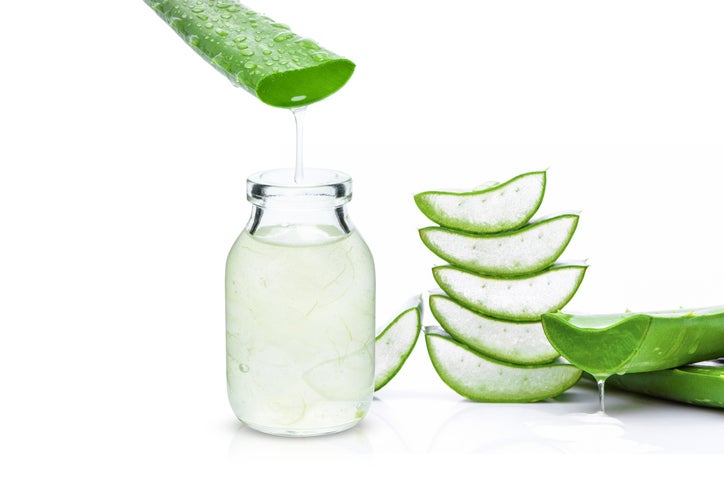 Everyday better to do everything you love/ Getty Images
Everyday better to do everything you love/ Getty ImagesAloe vera helps to hydrate and condition the hair, promoting softness, shine, and manageability. It also has soothing properties that can calm scalp irritation and reduce dandruff. To use aloe vera for hair washing, you can either use fresh aloe vera gel that is specifically formulated for hair or opt for store-bought aloe vera leaf and extract the gel yourself. Apply the gel directly to your wet hair, focusing on the scalp and roots. Massage it gently into your scalp for a few minutes to promote blood circulation. Leave the gel on your hair for about 5-10 minutes, allowing it to penetrate the strands and nourish your scalp. Finally, rinse thoroughly with water. Using aloe vera for hair washing is generally safe for most hair types. However, if you have any known allergies or sensitivities to aloe vera, it's best to do a patch test before applying it all over your hair and scalp.
Tea
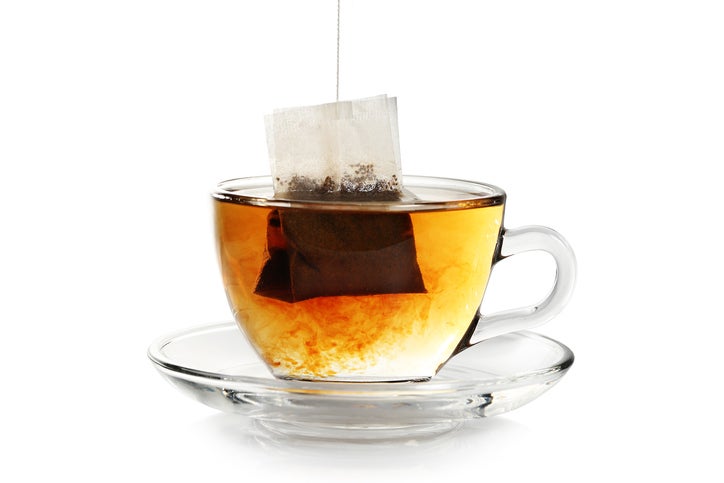 ConstantinosZ/ Getty Images
ConstantinosZ/ Getty ImagesTea, specifically herbal teas like chamomile, green tea, or black tea, can offer various benefits for your hair and scalp. Different teas offer different advantages. For example, chamomile tea can help soothe the scalp and add shine to blonde or light-colored hair. Green tea is known for its antioxidant properties, promoting healthy hair growth and reducing hair loss. Black tea contains caffeine, which can stimulate hair growth and add shine to darker hair. To use tea for hair washing, start by brewing a strong cup of your chosen tea. Let it cool down to room temperature. After, pour the tea over your hair, making sure to saturate your scalp and strands. Gently massage it in for a few minutes, allowing the tea's natural properties to nourish your hair follicles. Finally, rinse your hair thoroughly with cool water.
Eggs
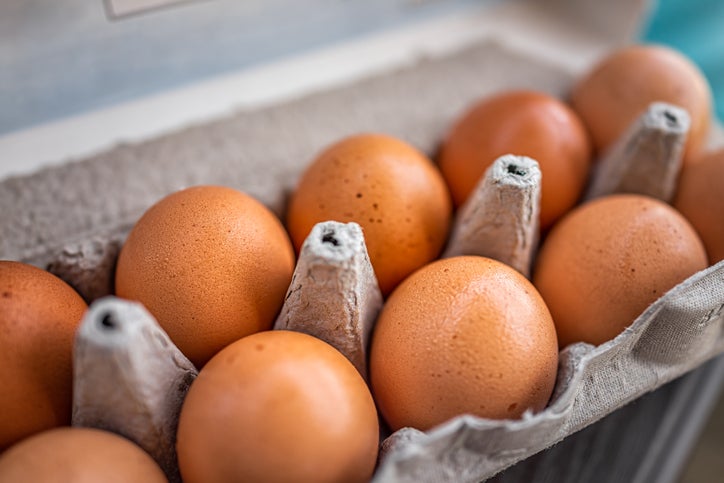 krblokhin/ Getty Images
krblokhin/ Getty ImagesEggs are rich in proteins and essential nutrients that can help repair and strengthen your hair strands. They also contain vitamins such as biotin and folate, which promote healthy hair growth. By using eggs as a hair wash, you can achieve softer, smoother hair with a natural shine. To use eggs for hair washing, crack an egg into a bowl and beat it until it becomes smooth. Wet your hair thoroughly and apply the beaten egg, focusing on the roots and lengths. Massage it in gently, then let it sit for about 5-10 minutes. Rinse your hair thoroughly with cool water to avoid cooking the egg and follow up with a mild shampoo If desired. if you have an egg allergy or a sensitive scalp, it's best to avoid this method.
Rice Water
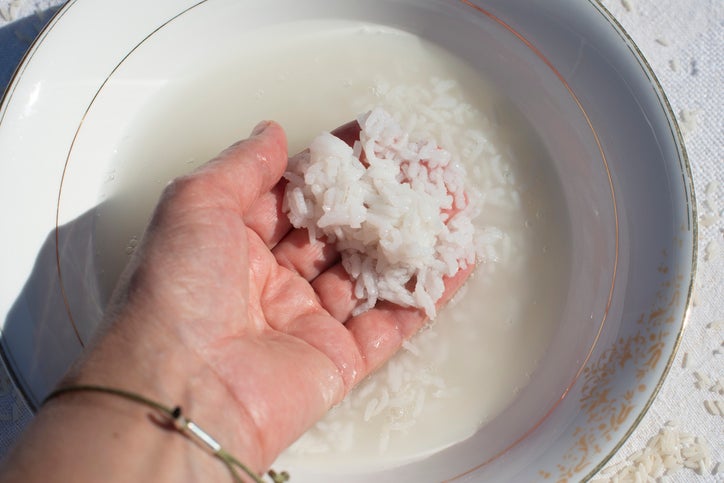 vasare/ Getty Images
vasare/ Getty ImagesThis beauty treatment is known for its ability to nourish and strengthen hair. To use rice water for hair, simply rinse uncooked rice thoroughly and collect the water that remains. This milky liquid is rich in vitamins, minerals, and amino acids that can promote hair growth and improve overall hair health. Apply the rice water to your hair, focusing on the roots and scalp, and gently massage it in. Leave it on for a few minutes, then rinse thoroughly. Regular use of rice water can help to make your hair stronger, smoother, and more manageable.
Beer
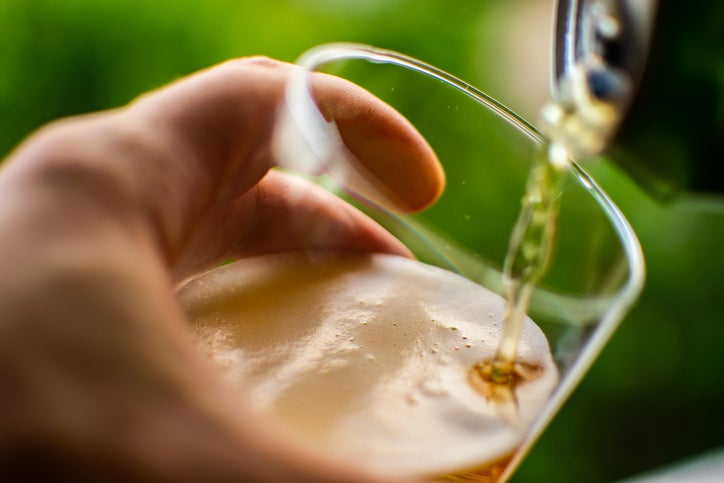 Dusan Ladjevic/ Getty Images
Dusan Ladjevic/ Getty ImagesGrab a can of beer from your fridge and get ready to transform your locks! Believe it or not, beer can be used as an unconventional yet effective hair cleanser. It may sound strange, but beer contains proteins and nutrients that can nourish your hair and give it a beautiful shine. To wash your hair with beer, start by opening a can or bottle and allowing it to go flat, as the carbonation can be too harsh for your scalp. Once flat, you can either use the beer directly or mix it with water to dilute it slightly. While in the shower, pour the beer over your hair, making sure to massage it into your scalp. Let it sit for a few minutes to allow the nutrients to penetrate your hair follicles, then rinse thoroughly with water. Keep in mind that beer may not be suitable for everyone, especially those with allergies, sensitivities, or specific hair conditions. It's always a good idea to test a small patch of hair before applying it all over your scalp.
Baking Soda
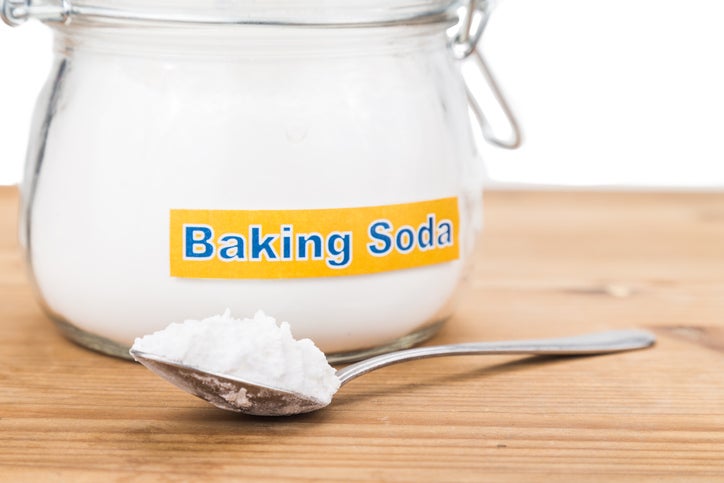 ThamKC/ Getty Images
ThamKC/ Getty ImagesBaking soda might just be the secret ingredient you need. It’s known for its ability to remove impurities and leave your hair feeling fresh and clean. To use baking soda as a shampoo substitute, simply create a paste by mixing a tablespoon of baking soda with water until it forms a smooth consistency. Apply the paste to your wet hair, focusing on the roots and scalp, and gently massage it in. After a couple of minutes, rinse thoroughly with water. Baking soda works by removing excess oil, product buildup, and residue, leaving your hair looking lighter and more voluminous. However, keep in mind that baking soda can be drying, so it's important to follow up with a conditioner or a diluted apple cider vinegar rinse to restore moisture and pH balance.
Apple Cider Vinegar
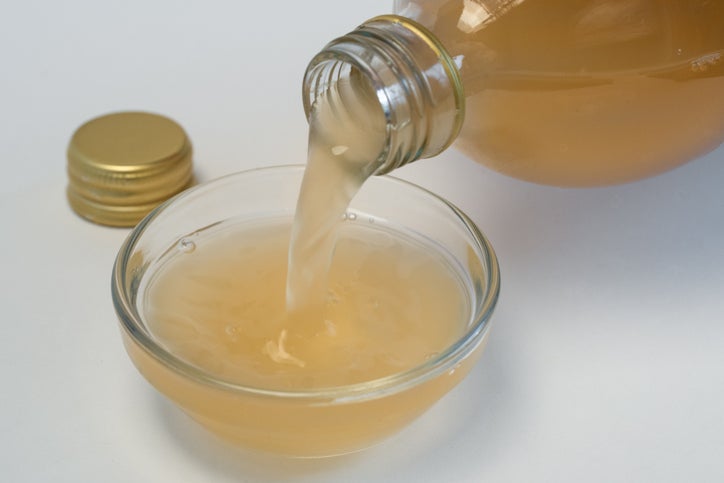 Michelle Lee Photography
Michelle Lee PhotographyThis kitchen staple has gained popularity as a hair-cleansing agent, and for good reason. When diluted with water, ACV can effectively remove buildup, excess oil, and product residue from your hair, leaving it feeling refreshed and revitalized. ACV also helps to balance the pH levels of your scalp, promoting a healthy environment for hair growth. Just mix a tablespoon or two of ACV with water, apply it to your hair, and rinse thoroughly.


